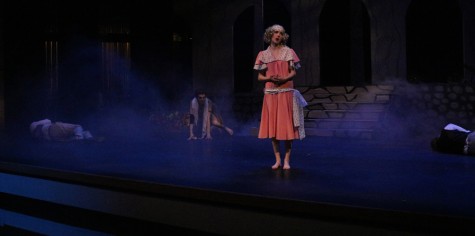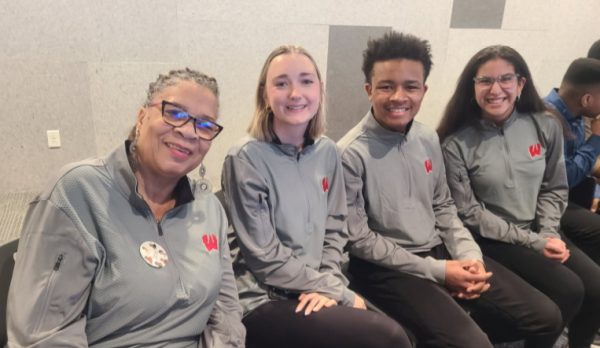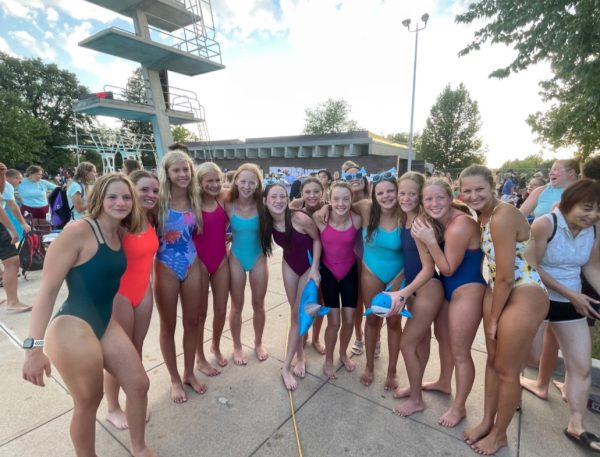Shakespeare becomes minimal in district curriculum
 For both the performers and students in the audience alike, last weekend wasn’t their first experience watching “A Midsummer Night’s Dream”. Since English instructor Eric Sayre added the play to the middle school language arts curriculum nearly 15 years ago, it has been taught and acted out in all 8th grade classes since. Sayre saw that the text challenged students to develop deeper analytic skills but also gave them the chance to act out and enjoy their first experience with Shakespeare’s work.
For both the performers and students in the audience alike, last weekend wasn’t their first experience watching “A Midsummer Night’s Dream”. Since English instructor Eric Sayre added the play to the middle school language arts curriculum nearly 15 years ago, it has been taught and acted out in all 8th grade classes since. Sayre saw that the text challenged students to develop deeper analytic skills but also gave them the chance to act out and enjoy their first experience with Shakespeare’s work.
“I wanted to add something to the curriculum that would be more rigorous than the young adult literature,” Sayre said. “I wanted to give my kids a really good experience with reading something challenging.”
However, a recent addition to the 8th grade language arts curriculum and developing a more organized class structure resulted in the play being taken out of the classroom. In it’s place, Language Art instructor Elizabeth Meyers and her colleagues decided to teach “The Rag and Bone Shop” instead.
“A Midsummer Night’s Dream” is a great work, but we found that the new arrangement allowed our students to dig a bit deeper in their thinking and to establish a bit more flow for our year,” Meyers said.
Not only has Shakespeare been taken out of the 8th grade curriculum, but Honors Sophomore Literature instructors Nathan Moseley and Molly Spisak made the decision to remove Romeo and Juliet from the curriculum as well. This change was made after deciding to add “Brave New World” back into the curriculum last fall.
Taking both of these pieces of literature out of the curriculum for the district means many students won’t have the opportunity to read one of Shakespeare’s plays until their senior year. The thought of students coming into AP Literature or Humanities their senior year without any prior experience with Shakespeare is unsettling for Sayre. He believes students need to work their way up to reading Shakespeare’s more complex texts including “Hamlet” and “King Lear”.
“My biggest fear is that a common trend in public education and in English courses right now is to go to the high interest literature,” Sayre said. “Of course kids want to read that, but at what point in time do we worry about not having enough literature that pushes students to a higher reading level?”
Your donation will support the student journalists of Omaha Westside High School. Your contribution will allow us to purchase equipment and cover our annual website hosting costs.






